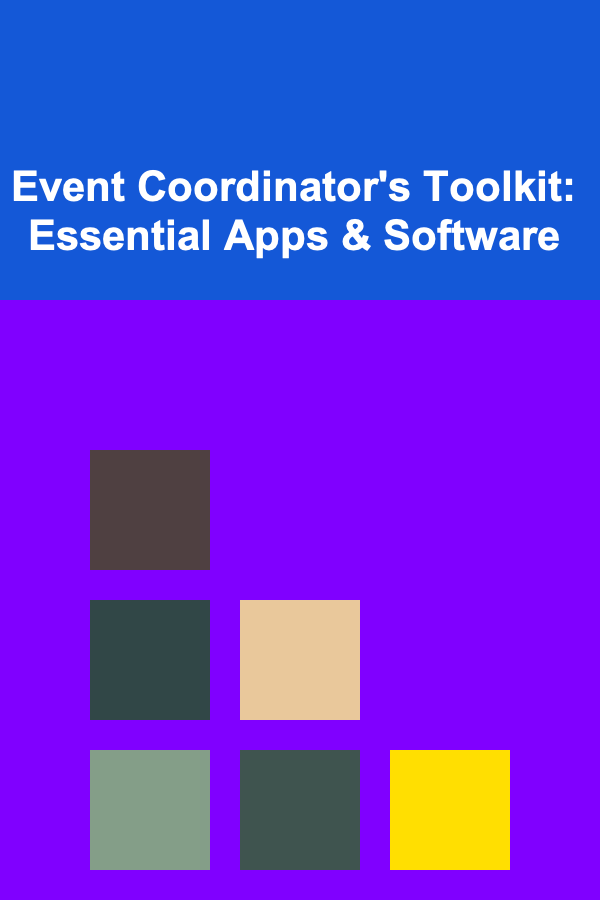
How to Ace Your First Technical Interview as a Junior Software Engineer
ebook include PDF & Audio bundle (Micro Guide)
$12.99$5.99
Limited Time Offer! Order within the next:

Starting your career as a junior software engineer can be exciting but also intimidating, especially when it comes to the technical interview process. Technical interviews are designed to assess your problem-solving abilities, coding skills, and knowledge of algorithms and data structures. The process can feel overwhelming, but with the right preparation, you can increase your chances of success.
In this article, we'll provide a comprehensive guide to help you ace your first technical interview as a junior software engineer. We'll cover key strategies, common pitfalls, and useful resources to help you prepare effectively.
Understand the Interview Structure
Technical interviews for junior software engineers typically consist of multiple rounds. It's essential to understand the general structure so you can prepare accordingly. The most common stages include:
- Phone Screen/Initial Interview: This is usually a brief call with a recruiter or hiring manager. You may be asked about your experience, a few technical questions, or a coding problem to solve.
- Coding Challenge: Often conducted online using platforms like HackerRank, LeetCode, or CodeSignal. The company may ask you to solve algorithmic problems in a limited time frame.
- Technical Interview (Whiteboard or On-site): This is the main coding round where you'll solve coding problems in real-time while explaining your thought process. It may involve problem-solving on a whiteboard or in a shared coding environment.
- System Design Interview: While more common for mid-level or senior positions, some junior roles may also include a basic system design interview. Here, you might be asked to design simple systems, demonstrating your understanding of scalability, databases, and APIs.
- Behavioral Interview: Although not technical, this round is just as crucial. You will be asked questions about your previous experience, teamwork, and how you approach challenges.
Master the Fundamentals of Data Structures and Algorithms
One of the core components of technical interviews is knowledge of data structures and algorithms. It's important to have a strong understanding of these topics, as most coding challenges involve implementing or optimizing algorithms.
Key Data Structures to Focus On:
- Arrays and Strings: Basic operations such as traversal, sorting, and searching.
- Linked Lists: Understanding singly and doubly linked lists, and common operations like insertion, deletion, and reversal.
- Stacks and Queues: Familiarize yourself with their usage in solving problems like balancing parentheses or managing data in a LIFO/FIFO manner.
- Trees and Graphs: Learn about binary trees, binary search trees, AVL trees, and graph traversal algorithms (BFS, DFS).
- Hash Tables: Understand how hash maps work and their applications in problems like counting frequency or finding duplicates.
- Heaps: Learn how heaps are used in priority queues and sorting.
- Dynamic Programming: Mastering dynamic programming problems like the knapsack problem or Fibonacci sequence can make you stand out in interviews.
Algorithms to Practice:
- Sorting Algorithms: Bubble sort, quicksort, mergesort, and understanding their time complexities.
- Searching Algorithms: Binary search, depth-first search (DFS), and breadth-first search (BFS).
- Recursion and Backtracking: Many problems, like generating permutations or solving mazes, rely on these techniques.
- Greedy Algorithms: Learn how to approach problems where a locally optimal solution leads to a globally optimal one, such as interval scheduling.
Practice Coding Problems Regularly
It's essential to practice solving coding problems under timed conditions to get used to the pressure of technical interviews. Platforms like LeetCode, HackerRank, and Codeforces offer a wide range of problems that are frequently asked in interviews.
Tips for Effective Practice:
- Set a Routine: Dedicate time each day to solving at least one coding problem. Start with easy problems and gradually work your way up to more challenging ones.
- Understand the Problem First: Before diving into coding, read the problem statement thoroughly and ensure you understand the requirements. Break down the problem into smaller parts.
- Write Clean Code: Write code that is easy to read and well-organized. Avoid overly complex solutions unless necessary. Aim for clarity.
- Explain Your Thought Process: As you work through the problem, talk through your approach out loud or write it down. This will help you articulate your reasoning during the interview.
- Optimize Your Solutions: Once you have a working solution, consider how you can improve it in terms of time complexity and space complexity.
Prepare for System Design Interviews
While system design interviews may not be a major focus for junior roles, having a basic understanding of system design principles can be helpful, especially for companies that prioritize well-rounded engineers.
Here are some key topics to study:
- Scalability: How systems can handle increased load, including techniques like sharding, load balancing, and caching.
- Databases: Understanding relational vs. NoSQL databases, indexing, and database normalization.
- APIs: Designing RESTful APIs, understanding HTTP methods, and handling API versioning.
- Distributed Systems: Basics of distributed systems, including concepts like consistency, availability, and partition tolerance (CAP theorem).
How to Prepare:
- Study resources like "Designing Data-Intensive Applications" by Martin Kleppmann or "System Design Interview" by Alex Xu.
- Practice by designing simple systems like a URL shortener, chat application, or a file storage system.
Review and Practice Behavioral Questions
While technical skills are crucial, behavioral questions are also a significant part of interviews. Interviewers want to assess your communication skills, problem-solving abilities, and whether you'll be a good fit for the team and company culture.
Common Behavioral Questions:
- Tell me about a time when you faced a challenge and how you overcame it.
- Describe a project you worked on and your role in it.
- How do you prioritize tasks when you have multiple deadlines?
- How do you handle feedback and criticism?
- Describe a time when you worked in a team and had a disagreement. How did you handle it?
Preparing for Behavioral Questions:
- Use the STAR method (Situation, Task, Action, Result) to structure your answers.
- Be honest and reflect on your past experiences, whether from school projects, internships, or personal projects.
- Practice answering questions out loud so you can deliver your responses clearly and confidently.
Simulate Mock Interviews
Mock interviews are one of the best ways to simulate the actual interview experience. They help you get comfortable with the pressure, improve your communication skills, and identify areas where you need to improve.
Where to Find Mock Interviews:
- Pramp: Offers free peer-to-peer mock interviews.
- Interviewing.io: Provides mock interviews with engineers from top tech companies.
- LeetCode Discuss: You can find study groups or pair up with others to do mock coding interviews.
In mock interviews, try to focus not just on solving the problem but also on how you communicate your approach and reasoning. Practice articulating your thought process, as it's crucial in the real interview.
Take Care of Your Well-Being
The interview process can be exhausting, both mentally and physically. It's important to maintain your well-being during your preparation.
Tips for Self-Care:
- Get Enough Sleep: Your brain works better when well-rested. Avoid cramming all-nighters the night before the interview.
- Eat Healthily: Proper nutrition fuels your body and mind. Avoid junk food and hydrate well before your interview.
- Take Breaks: Don't study or practice for hours without breaks. Take short breaks to refresh your mind.
Be Ready to Learn from Mistakes
In the interview process, you may not always get the answer right or may struggle with certain problems. It's important to handle these moments gracefully and view them as learning experiences.
- Don't Get Discouraged: If you encounter a tough problem or make a mistake, stay calm and positive. Take note of what went wrong and work on it for next time.
- Seek Feedback: After the interview, politely ask for feedback to identify areas where you can improve for future interviews.
Conclusion
Acing your first technical interview as a junior software engineer may seem like a daunting challenge, but with the right preparation and mindset, you can succeed. Focus on mastering the fundamentals, practicing coding problems regularly, preparing for behavioral questions, and staying calm during the interview process.
Remember, technical interviews are not just about solving problems; they are also about demonstrating your ability to communicate effectively and think critically under pressure. By following the tips outlined in this guide, you can increase your chances of success and take your first step toward launching a successful software engineering career.
Reading More From Our Other Websites
- [Polymer Clay Modeling Tip 101] Mastering Complex Color Transitions: Advanced Techniques for Seamless Polymer Clay Blends
- [Home Rental Property 101] How to Deal with Problem Tenants in Your Home Rental Property
- [Home Cleaning 101] How to Clean and Organize Your Pantry Like a Pro
- [Organization Tip 101] How to Save Water and Money with a Drip Irrigation System
- [Home Renovating 101] How to Update Your Bathroom Without Breaking the Bank
- [Home Rental Property 101] How to Enhance Security Features in Your Rental Home
- [Home Party Planning 101] How to Plan a Seasonal Home Party That Celebrates the Time of Year
- [Organization Tip 101] How to Organize Your Online Research Materials
- [Home Family Activity 101] How to Make Homemade Ice Cream with Kids: A Fun Family Kitchen Adventure
- [Small Business 101] Best Ways to Secure Small Business Grants for Women‑Owned Eco‑Friendly Enterprises

How to Conduct a Targeted Job Search
Read More
How to Handle Short-Term Rental Properties and Airbnb
Read More
How to Use Lighting to Create a Focal Point in Your Dining Room
Read More
How to Maintain Attraction in a Relationship
Read More
How to Handle Legal Issues in Your Small Business
Read More
Event Coordinator's Toolkit: Essential Apps & Software
Read MoreOther Products

How to Conduct a Targeted Job Search
Read More
How to Handle Short-Term Rental Properties and Airbnb
Read More
How to Use Lighting to Create a Focal Point in Your Dining Room
Read More
How to Maintain Attraction in a Relationship
Read More
How to Handle Legal Issues in Your Small Business
Read More